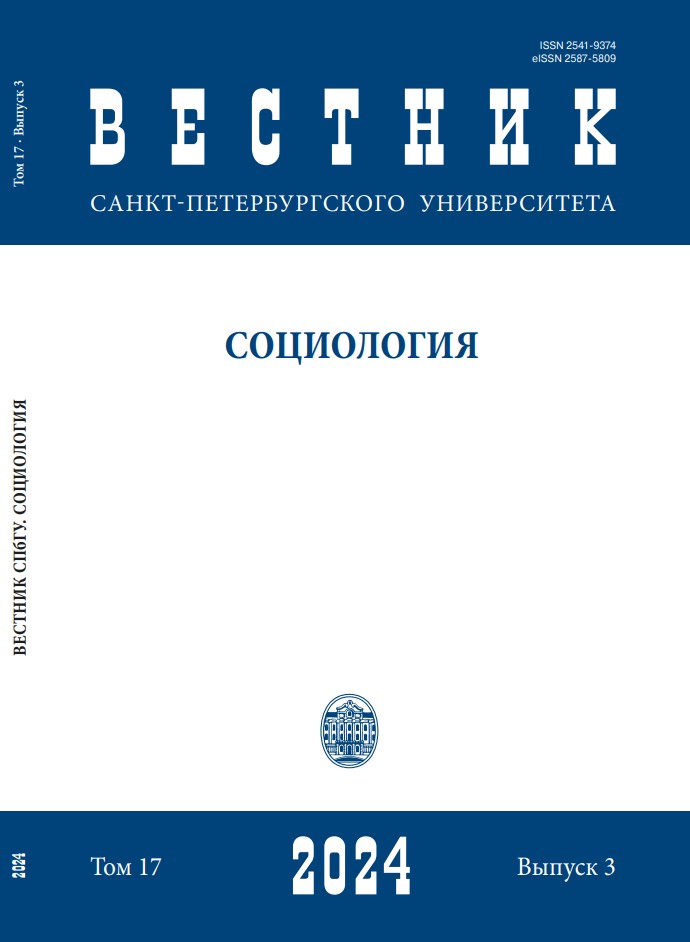Young immigrants from Uzbekistan in the Moscow region in the EAEU expansion perspective
DOI:
https://doi.org/10.21638/spbu12.2024.305Abstract
One of the significant achievements of the ten-year functioning of the EAEU was the removal of barriers to labor mobility within the borders of the Union member countries. One of the countries that received the status of an observer country in the EAEU format was Uzbekistan. Migrants from Uzbekistan occupy a dominant position in the labor market of Russia and the Moscow region. The prospect of simplifying migration opportunities for working in Russia for citizens of this country raises the issue of studying this ethnic group in a new way, especially in the context of the disproportion of available empirical data and the relatively small number of publications in scientific journals. In this article, based on a sociological study, the authors
attempt to characterize intergenerational differences within the youth group of migrants from Uzbekistan who work in Moscow and the Moscow region. In addition, the authors assess the characteristics of integration processes in the EAEU format on the part of Uzbek migrants. The authors note the difficulty of conducting sociological surveys of this group due to the language barrier and the group’s closeness to outsiders. The survey results indicate the presence of pronounced intergenerational differences within the youth group of migrants from Uzbekistan in the context of the reasons for migration, the scope of professional efforts, values and identity, leisure practices, and assessment of migration policy. The authors also conclude that young migrants from Uzbekistan generally approve of the integration of their country into the EAEU space, and the associated expectations for improving their lives. However, it is also noted that alternative formats of integration in Eurasia are highly attractive for young migrants.
Keywords:
immigrants, youth, labor migration, intergenerational differences, EAEU
Downloads
References
Downloads
Published
How to Cite
Issue
Section
License
Articles of "Vestnik of Saint Petersburg University. Sociology" are open access distributed under the terms of the License Agreement with Saint Petersburg State University, which permits to the authors unrestricted distribution and self-archiving free of charge.




